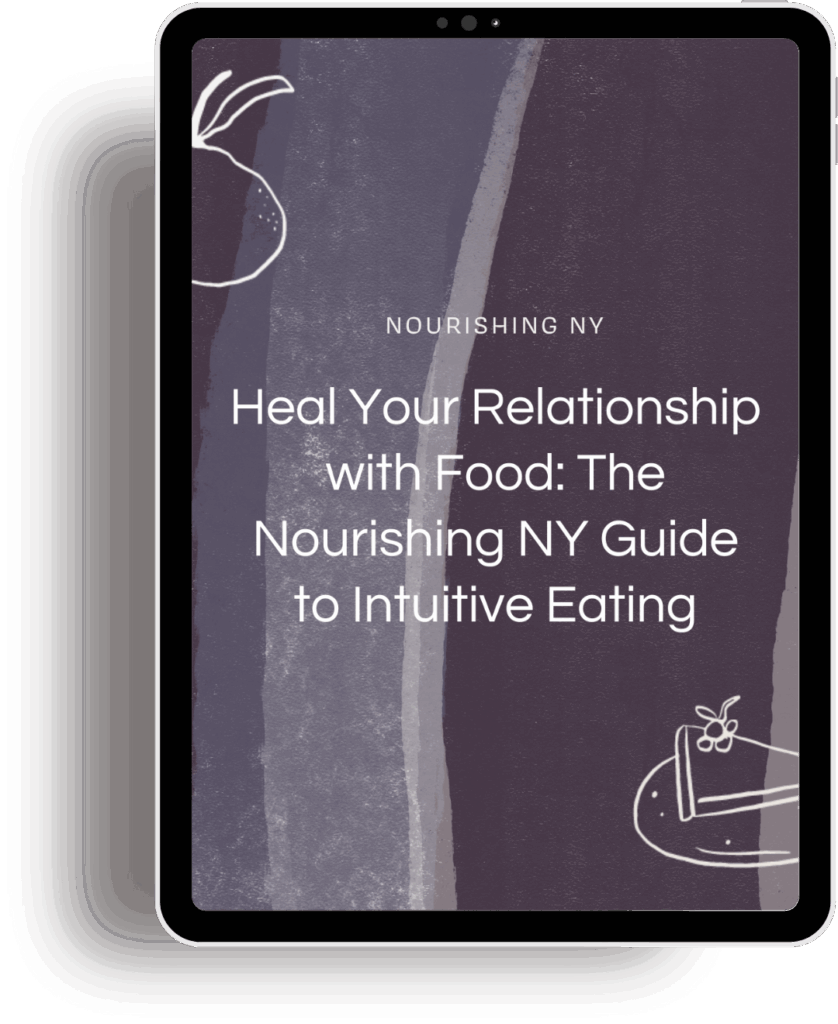Health at Every Size is a weight-neutral model of care. It challenges us to reject the idea that specific body size can impact or result in positive health outcomes.
To be a Health at Every Size (HAES) provider means we are providing the best care possible for our clients, specifically with a weight neutral approach. We are striving to end weight discrimination and the bias set around weight, especially within the healthcare field. The diet culture that has been surrounding us for decades has led us to believe that thinness is health. As we learn this is untrue, we emphasize that health can be achieved living in a body at any size, independent of the presence of health conditions.
As HAES providers, we are dedicated to applying the HAES core principles to our counseling, providing individualized care to every client. This includes the emphasis on nourishing the body, and trusting it will reach a size that feels right when properly fed and cared for. The core principles include: weight inclusivity, health enhancement, eating for well-being, respectful care, life-enhancing movement.
Weight Inclusivity: Accept and respect the inherent diversity of body shapes and sizes and reject the idealizing or pathologizing of specific weights.
The first step in ending weight bias is understanding that body thinness has been mistakenly perceived as the gold star of health. Becoming self aware, and realizing how this preconceived notion can affect every day life, both personally and professionally, helps end the discrimination. As providers, we work to debunk this perception of health, and we provide each client with the best care possible regardless of body size.
Health Enhancement: Support health policies that improve and equalize access to information and services, and personal practices that improve human well-being, including attention to individual physical, economic, social, spiritual, emotional and other needs.
It is important to provide equal healthcare access to all. People who live in larger bodies are often hesitant to reach out for necessary care, for fear that providers will make the focus on weight and/or weight loss. The presence of weight-centered treatment leads to unequal and often inadequate care. Focusing on improving the access to healthcare, by using a weight-neutral approach, helps enhance the treatment people receive, and can lead to better healthcare outcomes (Phelan, 2015).
Eating for well being: Promote flexible, individualized eating based on hunger, satiety, nutritional needs, and pleasure, rather than any externally regulated eating plan focused on weight control.
The relationship that an individual has with food is personal, intimate, and ever changing. As HAES providers, we provide an intuitive eating approach to improving our clients’ relationship with food. The priority is on nourishing the body. When the body is properly fed and given the energy it needs, it will naturally find a body size where it is comfortable. Finding that eating pattern looks different for everyone, and we are dedicated to meeting every client where they are, individualizing the counseling as much as possible.
Respectful Care: Acknowledge our biases, and work to end weight discrimination, weight stigma, and bias. Provide information and services from an understanding that socio-economic status, race, gender, sexual orientation, age, and other identities impact weight stigma, and support environments that address these inequities.
Part of providing respectful care is to be self aware. This means constantly stepping back to identify any personal or professional biases, and working to end them. Another aspect of respectful care is to provide informed consent. This means assuring that patients have complete knowledge and understanding of suggested care, including risks and possible outcomes. With respectful care, health education is provided with the patient/client in full agreement.
Life enhancing movement: Support physical activities that allow people of all sizes, abilities, and interests to engage in enjoyable movement, to the degree that they choose
Intuitive movement is an important aspect of the HAES approach. Finding a level of movement that works best for the individual, based on physical and mental capabilities is something we prioritize while using clinical judgment. As providers it is crucial to differentiate between movement for weight loss, and movement for overall well being. Gentle, intuitive movement can be seen as a way to destress throughout the day, rather than a weight loss approach. We encourage our clients to listen to the body, and honor the body’s energy levels throughout movement.
Sources:
Phelan SM, Burgess DJ, Yeazel MW, Hellerstedt WL, Griffin JM, Ryn M. Impact of weight bias and stigma on quality of care and outcomes for patients with obesity. Obesity Reviews. 2015;16(4):319-326. doi:10.1111/obr.12266
The health at every size® (HAES®) principles. ASDAH. https://asdah.org/health-at-every-size-haes-approach/. Published April 22, 2022. Accessed October 26, 2022.



